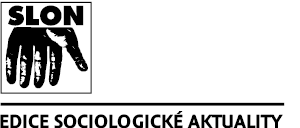
Jak v české společnosti osobní dluhy formují životy zadlužených a společenské hierarchie?
[How do personal debts shape the lives of the indebted and social hierarchies in Czech society?]
Hoření Samec, Tomáš – Trlifajová, Lucie
subjects:
sociology, economics and finance
series:
SLON – Sociological News
paperback, 216 pp., 1. edition
published: january 2025
ISBN: 978-80-246-5992-3
recommended price: 320 czk
summary
In the Czech Republic, one in ten adults has experienced foreclosure proceedings and more than one million households are paying off a mortgage. What does having a loan or being over-indebted mean for debtors and for Czech society? How is debt and over-indebtedness connected with the social position of debtors and housing insecurity? How do representatives of public institutions and top politicians talk about debt and loans? And how do debtors talk about their experiences?
The present monograph offers answers to these questions and adds a new perspective to the debate on loans and debt in Czech society. As the authors explain, loans and debts are not only a ‘purely’ economic transaction, although they are often viewed as such; they also have an important moral and social dimension. This is illustrated by the results of qualitative research on the moral discourse of debt. By analysing the political discourse of debt and interviews with debtors and representatives of relevant institutions, this research presents what kind of debt is perceived as morally (not) right.
According to the research presented, the use of loans is socially acceptable, but failure to repay is heavily sanctioned in a system that has been disproportionately set up to the disadvantage of debtors. Debtors are not only stigmatised, but they are also placed in a situation where their basic civil rights, income and privacy may be restricted and they lose their housing stability. Loans and debts are thus shown to be ambivalent: on the one hand, they allow the consumption of certain goods that would otherwise be unavailable to the debtor, while on the other hand they create new hierarchies and inequalities.
newest releases in the series
